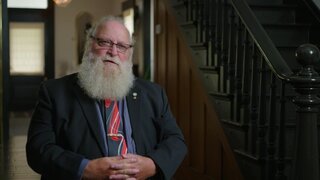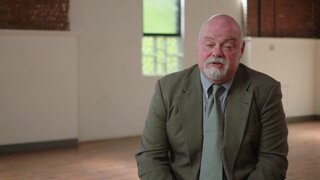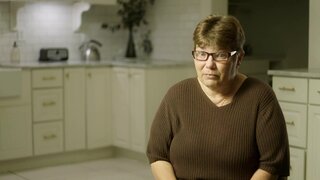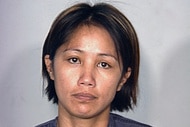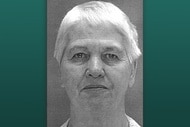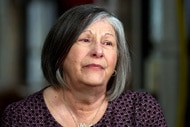"We Lost 3 Generations In One Night": A Young Woman, Her Kids, And Her Mom Killed In Family Massacre
Who killed a young mom, her children, and her mother? Investigators discovered the murderer wasn’t a stranger — it was someone very close to home.
In the early morning hours of March 26, 2000, the peaceful predawn stillness blanketing the community of Corydon, Indiana was shattered by a shocking discovery.
Harrison County Sheriff’s Department officers had responded to a request for a wellness check from Kelly Holland, who worked the overnight shift in a distribution center in nearby Louisville, Kentucky. He told them he’d been unable to reach anyone by phone.
Inside the home police found the bodies of Holland’s wife, Summer, 22, her two children, Dillian, 4, and Marissa, 3, and his mother-in-law, Donna Daley, 49.
Summer and Donna had been shot in the head with a .9mm handgun. The children had been killed in a house fire sheriffs determined had been intentionally set. They died from smoke inhalation.
“We found a little boy in between a bed and a wall. There were claw marks on the wall where he had tried to escape,” Gary Gilley, a retired Harrison County Sheriff’s Department officer, told “Family Massacre,” streaming now on Oxygen.com.
While officials worked the crime scene, Kelly Holland arrived home. He dropped to the ground and retched when he was informed of the homicides, investigators recalled. He and Summer had been married less than a year.
“We lost three generations in one night,” said Dorinda Arndt-Riley, Summer’s sister. “I was in shock. Summer didn’t have any enemies … Who could do this?”
Officers looked into a number of early leads. Summer had filed a report about disruptive neighbors who had been firing guns in the direction of her house, but the neighbors had a solid alibi and were cleared as suspects. Summer’s ex-boyfriend was cleared as well.
As in all homicides in which a wife is killed, Kelly Holland had to also be considered a prime suspect. “He was going to be heavily scrutinized,” said Det. Roy Weisman, now retired from the Harrison County Sheriff’s Department.
It had been determined that an accelerant had been used in the fatal fire, so officials asked Kelly for clothes he wore when he arrived at the scene for analysis. He agreed and told authorities that he possessed no firearms and didn’t have access to one. His alibi about being at work during the crime checked out.
With nothing on Kelly’s record beside a speeding ticket, officials, who sized him up as being “very likable,” “clean-cut,” and “soft-spoken,” turned their focus to other possible leads and suspects.
But a phone call from one of Kelly’s fellow National Guardsman in Kentucky shifted attention back to Summer’s husband. The Guardsman told investigators that two days before the murders, he had loaned Kelly a .9mm pistol. It was the same caliber of the gun used in the homicides. Kelly had said he needed it because of wild dogs in his neighborhood.
The revelation that Kelly lied about having access to a gun prompted officials to look into his alibi about being at work. During this second search, it was determined that the nature of Kelly’s work would have enabled him to slip out unnoticed.
Evidence against him further mounted when traces of accelerant were found on Kelly’s clothes. He tried to explain that away by saying he’d gotten gas in order to burn trash.
After agreeing to a polygraph test, Kelly was found to be deceptive each time he was asked a question about the homicides. At a point in an interview with officials, Kelly said he had said all that he was going to say.
However, while riding with sheriffs, he told them to pull over and he would come clean about the crime. He said that he and Summer, although newlyweds, were having a rocky time. He had returned home with the gun and planned to kill himself.
Kelly confessed that he hadn’t meant to shoot his wife and couldn’t remember shooting his mother-in-law. He admitted setting the fire but believed that someone would see the flames and smoke in time to call the police and fire department.
Where was the murder weapon? Kelly said he tossed it into the Ohio River.
Five days after the bodies of his family members were found, Kelly Holland was arrested for four homicides and attempted arson.
On April 17, 2001, Kelly’s trial began. “Not even one teardrop fell from that man’s eyes,” Arndt-Riley told producers.
Kelly ended up taking a plea to life without the chance of parole in exchange for the death penalty not being filed against him. "His plea agreement required him to provide an account of the murders,” reported the Louisville-Courier Journal. He said that his mental disorder, coupled with money and marital issues, “had plunged him into an agitated emotional state. Initially, he said, he had been hoping to rekindle his four-month marriage that night.”
Essentially, the judge dismissed Kelly's accounts, according to Grace Schneider, a reporter for the Louisville-Courier Journal.
“He appeared angry about the fact that Kelly Holland was not truthful,” she told producers. “He thinks that he had in mind when he got a gun that he would kill his wife. He says your acts that night are critical and you will pay for them.”
Kelly Holland is currently serving his life sentence without parole at Indiana State Prison in Michigan City, Indiana.
The victims’ family continues to grieve. “When he left the courtroom I wasn’t getting any remorse,” said Summer’s sister. “He just had this dull lifeless look on his face. I looked at him and I told him, ‘I don't forgive you.’”
The Holland family massacre is a crime that seasoned law enforcement officers can’t shake.
“It was the most evil act I’ve ever witnessed in my life,” said Gilley.
To learn more about the case, watch “Family Massacre,” streaming now on Oxygen.com.

